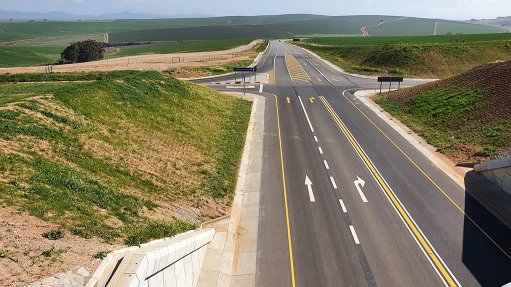Africa strategy review set in motion by US auto group
US carmaker Ford would draft a more holistic strategy for the brand’s growth in Africa in “the next year or two”, Ford Motor Company group VP and Asia Pacific president David Schoch said during a recent media roundtable in Pretoria. This would include an evaluation of the products it could develop to attract more customers in Africa.
Ford currently divides the continent into three regions, namely north, central and sub-Saharan Africa. Ford Motor Company of Southern Africa (FMCSA) is responsible for 24 markets in sub-Saharan Africa.
Schoch said the US vehicle manufacturer had been focused on sub-Saharan African growth, and had not really had “the rest of Africa on its radar screen”.
However, Africa was viewed as the “next big growth area”, following in the footsteps of the booming Asian markets. Despite the continent comprising a number of countries at various stages of development, Schoch said that the next five to ten years would see the number of people with disposable income growing, which would, in turn, fuel new vehicle sales in Africa.
FMCSA supplied a number of products to sub-Saharan Africa, said president and CEO Jeff Nemeth, including North American products, such as the F150 bakkie, not available in South Africa.
However, the made-in-South Africa Ranger pick-up made up around 70% of the 13 000 Fords sold in sub-Saharan Africa (excluding South Africa) in 2012.
This was up from sales of 1 000 units in the region in 2002.
Year-to-date Ford sales in sub-Saharan Africa (again excluding South Africa) in 2013 were 7 607 units, of which 5 200 units were Ranger pick-ups.
“We do not see this slowing down, but accelerating,” said Nemeth.
He noted that most African economies were showing healthy economic growth, with especially Tanzania, Ghana, Angola, Nigeria and Kenya proving lucrative to the Ford brand.
A continuously growing portion of Ford sales in sub-Saharan Africa was to private individuals, he added, with governments no longer the only customers, which was indicative of the rise of the middle class on the continent.
A growing middle class would also aid the shift from used to new vehicles in Africa, said Nemeth. Nigeria, for example, had a new-vehicle market of around 50 000 units last year, compared with the sale of roughly 400 000 used vehicles.
FMCSA had already met its programme target of 68% local content on the Pretoria-made Ranger pick-up, said Nemeth.
“We think we can go beyond this target.”
Assisting this drive was a weaker rand, which encouraged local content as opposed to more expensive imports, as well as the Silverton plant running at manned capacity, owing to healthy demand for the Ranger.
Government’s Automotive Production and Development Programme (APDP), which returned a portion of investment-spend to automotive companies, had also provided financial assistance to a number of component suppliers.
“We’ll localise 15 parts this year,” said Nemeth.
With the local automotive industry and unions currently locked in talks on the implementation of a new multiyear wage agreement, Nemeth said he was “very optimistic we can get there without a strike”.
Negotiations started in June, with the next round of talks to kick off on August 1.
Schoch said it was important for South Africa to develop its position as a cost-competitive export base, especially as the country could benefit from a number of export opportunities to developing markets.
He added that it was clear that, over the last five years, the South African government had been “very supportive” and had been “doing a lot” to improve the country’s infrastructure, ensuring goods moved through the system faster.
However, he emphasised that an unpredictable labour system, punctuated by wildcat strikes, could create anxiety among investors.
Nemeth noted that foreign investors “loved” a stable government, a stable labour environment and a stable economy.
Also, Ford would make a decision on production plants for the new model Ranger in 2015, which meant that there would have to be some clarity on the extension of the APDP by then, or any government support programme that might follow in its footsteps, he added.
The APDP is set to run from 2013 to 2020.
The life span of any vehicle model typically runs at around seven years.
Nemeth said it would take 12 to 18 months before FMCSA would be able to fully report on the success of the APDP, as the remnants of benefits earned under the preceding Motor Industry Development Programme were still filtering through the system. However, he added that FMCSA believed the APDP to be a “great programme” which had helped vehicle manufacturers expand their plant footprint.
Comments
Press Office
Announcements
What's On
Subscribe to improve your user experience...
Option 1 (equivalent of R125 a month):
Receive a weekly copy of Creamer Media's Engineering News & Mining Weekly magazine
(print copy for those in South Africa and e-magazine for those outside of South Africa)
Receive daily email newsletters
Access to full search results
Access archive of magazine back copies
Access to Projects in Progress
Access to ONE Research Report of your choice in PDF format
Option 2 (equivalent of R375 a month):
All benefits from Option 1
PLUS
Access to Creamer Media's Research Channel Africa for ALL Research Reports, in PDF format, on various industrial and mining sectors
including Electricity; Water; Energy Transition; Hydrogen; Roads, Rail and Ports; Coal; Gold; Platinum; Battery Metals; etc.
Already a subscriber?
Forgotten your password?
Receive weekly copy of Creamer Media's Engineering News & Mining Weekly magazine (print copy for those in South Africa and e-magazine for those outside of South Africa)
➕
Recieve daily email newsletters
➕
Access to full search results
➕
Access archive of magazine back copies
➕
Access to Projects in Progress
➕
Access to ONE Research Report of your choice in PDF format
RESEARCH CHANNEL AFRICA
R4500 (equivalent of R375 a month)
SUBSCRIBEAll benefits from Option 1
➕
Access to Creamer Media's Research Channel Africa for ALL Research Reports on various industrial and mining sectors, in PDF format, including on:
Electricity
➕
Water
➕
Energy Transition
➕
Hydrogen
➕
Roads, Rail and Ports
➕
Coal
➕
Gold
➕
Platinum
➕
Battery Metals
➕
etc.
Receive all benefits from Option 1 or Option 2 delivered to numerous people at your company
➕
Multiple User names and Passwords for simultaneous log-ins
➕
Intranet integration access to all in your organisation


















